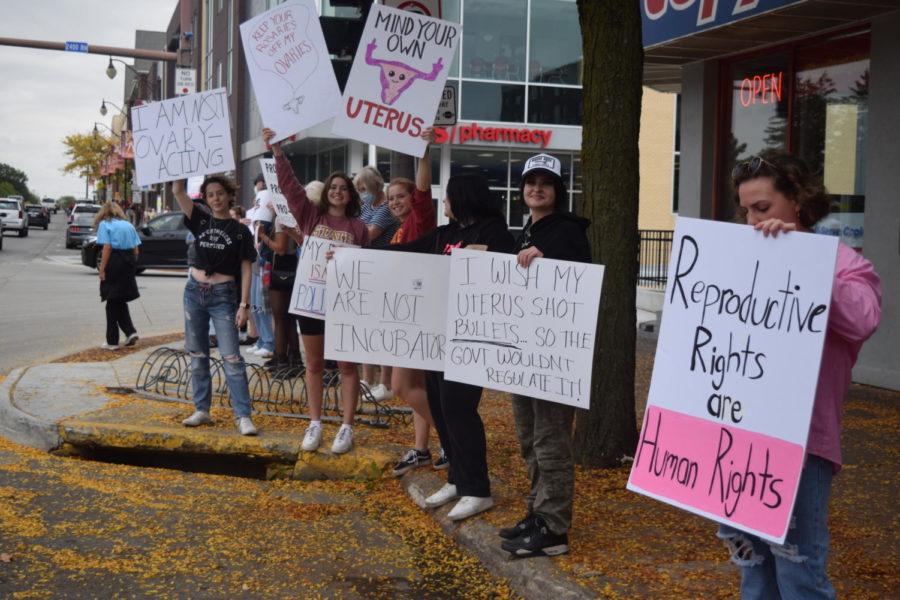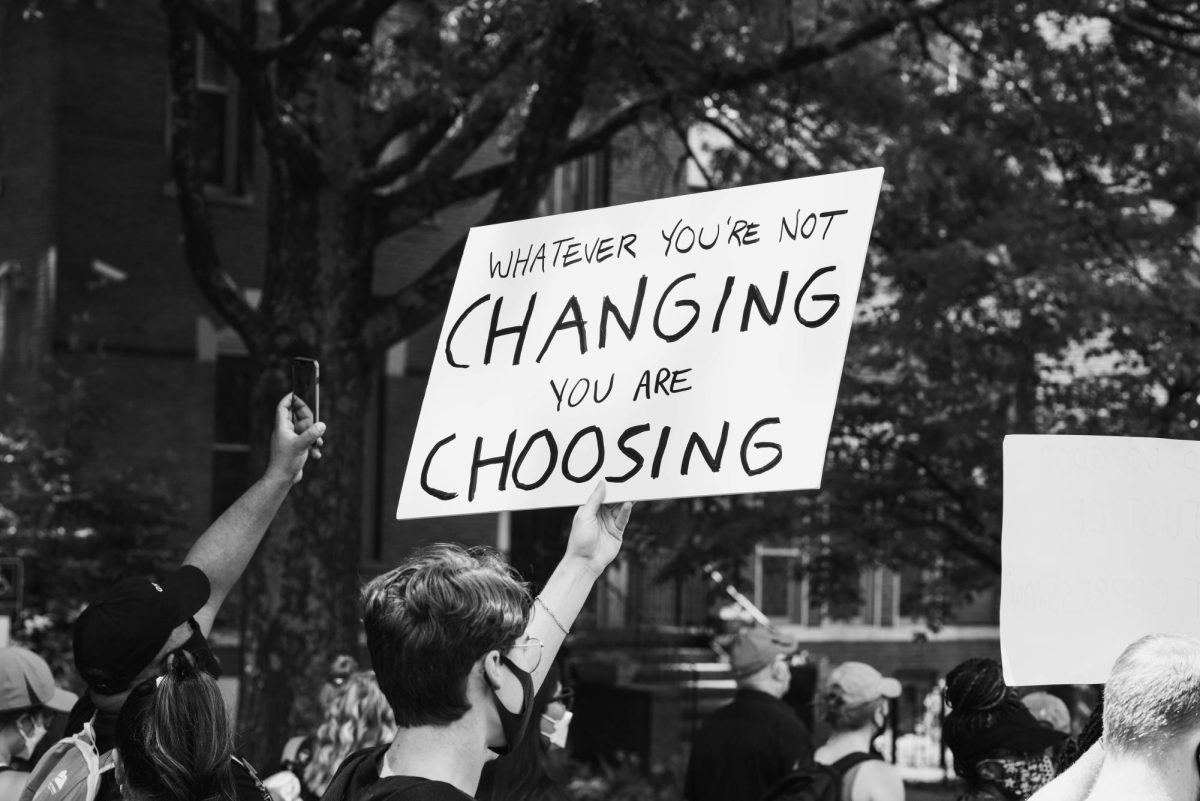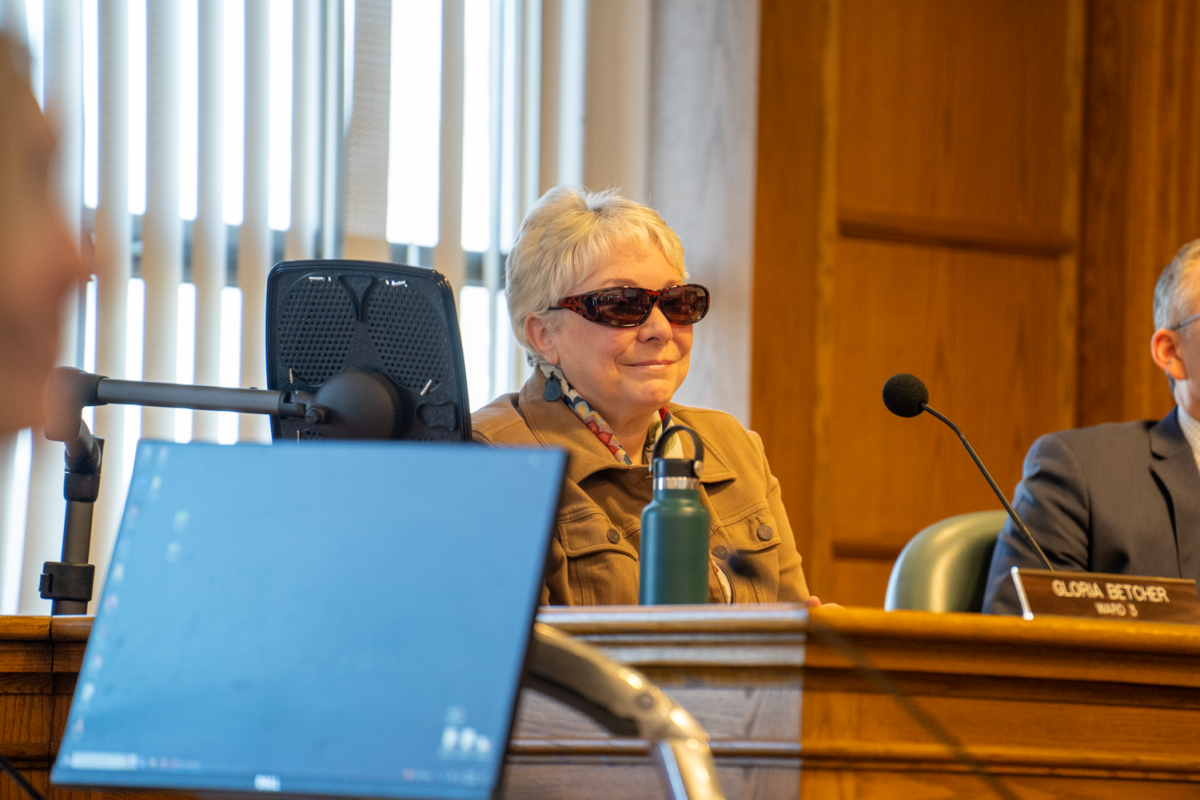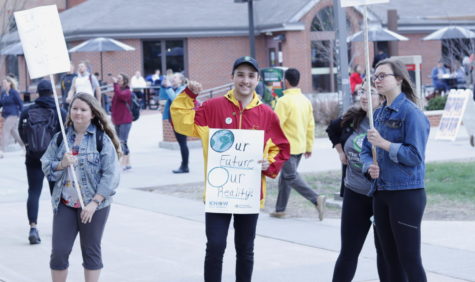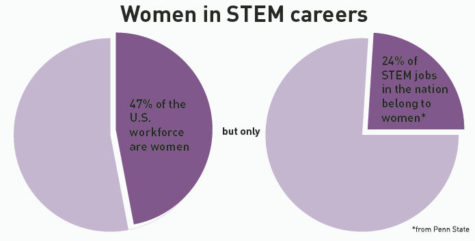Supreme Court reconsidering Roe v. Wade
Activists gather at Stanton and Lincoln Way Ave. to defend reproductive rights after states enact anti-abortion legislation.
December 9, 2021
The United States Supreme Court heard arguments about a Mississippi state law that bans abortions after 15 weeks of pregnancy which could potentially overrule Roe v. Wade.
The 50-year precedent protects the right to an abortion without excessive government restriction. If overturned, states would have the power to implement policy restricting accessibility or banning the medical procedure.
The Supreme Court heard arguments from the case of Dobbs v. Jackson Women’s Health Organization. The case centers on a Mississippi law from 2018 banning abortion after 15 weeks except for medical emergencies and cases of severe fetal abnormality.
In Roe v. Wade, the Supreme Court disagreed with the assertion of an absolute right to terminate a pregnancy, trying to balance states’ interest in regulating abortion and privacy rights. The decision held a constitutional right to abortion before fetal viability, which is around 23 weeks of pregnancy.
Karen Kedrowski, the Chair of the Carrie Chapman Catt Center at Iowa State, said pro-life advocates have been trying to overturn Roe v. Wade for decades.
“Initially the pro-life strategy was to try to get a constituional amendment declaring that life began at conception,” Kedrowski said. “They decided to use the courts by getting conservative justices appointed and then passing laws at the state level that they knew would be challenged in court in the hopes that a case would get to the Supreme Court and eventually lead to Roe being overturned.”
While hearing the arguments in the case, Justice Amy Coney Barrett suggested that adoption laws could replace the need for abortion altogether. She argued that since all 50 states had passed “safe-haven” laws allowing individuals to relinquish parental rights after birth, the burden of parenthood is no longer relevant.
“You and many of your amici focus on the ways in which forced parenting, forced motherhood, would hinder women’s access to the workplace and to equal opportunities, it’s also focused on the consequences of parenting and the obligations of motherhood that flow from pregnancy,” said Barrett. “Why don’t the safe-haven laws take care of that problem?”
Justice Elena Kagan argued that after 50 years of precedent, the arguments to overturn Roe v. Wade haven’t fundamentally changed, and therefore there should be no reason the ruling should change.
“So the rationale behind those cases has something to do with the autonomy and the freedom and the dignity of women to pursue their lives as they wish, to protect their bodily integrity, to make the decisions that are most fundamental to the course of their lives.” Kagan said.
Kedrowski said that Roe v. Wade is more likely to be overturned now than ever before.
“It will require the court to overturn or ignore 50 years of precedent and precedent in the traditions of the court is very important and frankly that’s what’s kept Roe v Wade intact for so long,” she said. “That isn’t to say that precedent can’t be overturned.”
During his 2018 confirmation, Justice Brett Kavanaugh emphasized the importance of precedent and said overturning precedent is rare. Sen. Susan Collins (R-ME) said that Kavanaugh told her that Roe v Wade is “settled law” and pointed to that as why she voted to confirm him.
However, during the case this week, Kavanaugh argued that stare decisis, the principle of the court standing by previous decisions, shouldn’t always be followed.
“As I’ve looked at it, and the history of how the court applied stare decisis, and when you really dig into it, history tells somewhat a different story, I think, than what is sometimes assumed,” said Kavanaugh. “If you think about some of the most important cases, some of the most consequential cases in this court’s history, there’s a string of them where the cases overruled precedent.”
The Supreme Court currently has six Republican-appointed justices to the three Democrat-appointed justices. Aura Garcia, a junior majoring in sociology at Iowa State, is in favor of the right to an abortion and doesn’t think that Roe v. Wade should be overturned.
“I think that the fact that they are currently hearing a case where they could possibly overturn Roe v. Wade is very concerning for all women in the United States because if it was a man’s body they wouldn’t even be having that kind of discussion,” said Garcia. “I think it’s very likely [to be overturned] with the number of judges being mostly conservative and the types of questions they’ve been asking, it sounds like they’re leaning towards going that route.”
Olivia Jones, a sophomore majoring in advertising at Iowa State, is opposed to the ruling in Roe v. Wade and hopes to see it overturned.
“I don’t believe it is constitutional,” Jones said. “They had to really dig in the Constitution to find what I would say is almost a loophole. They reference privacy in Roe v. Wade and that’s what gives you the right to an abortion but if you talk to legal experts they say it’s not constitutional.”
Jones is not optimistic that her side will win either
“I think it’s more likely that we see Planned Parenthood v. Casey overturned than Roe v. Wade. I think it’s definitely a possibility but at this time I’m not confident that it will be.”
If Roe v. Wade is overturned, it would be up to the states to decide the legality of abortions. “Trigger laws” are state legislation in waiting that would ban or restrict abortion if Roe v. Wade is overturned. Currently, 20 states have implemented trigger laws.
“The [Iowa] state precedent is based on the fact that sex is a fully protected class under the state Constitution,” said Kedrowski. “I am sure that there will be efforts to overturn that and to pass legislation that would come up in the state courts.”
Garcia said if abortions are made illegal in Iowa, she believes it will be protested. She hopes that either way, people continue to fight for women’s rights.
“I think I would like to see people upholding places like Planned Parenthood, keeping them open and maybe providing more service towards birth control,” said Garcia. “I think we focus too much on abortion itself instead of the causes of why people have abortions like maybe increasing women’s pay and really giving women the opportunity to not have to make that decision wile also letting them make that decision.”
If Roe v. Wade is overturned, Jones said she wants to see legislation passed in Iowa to make abortion illegal.
“We’ve been trying to get the heartbeat bill passed for quite a while in Iowa,” said Jones. “I think that would be a good start. We vow to protect life in our Constitution. You have the right to life and the pursuit of happiness and I think that abortion goes against that.”
The Supreme Court is expected to make its decision on Roe v. Wade by the summer of 2022.

